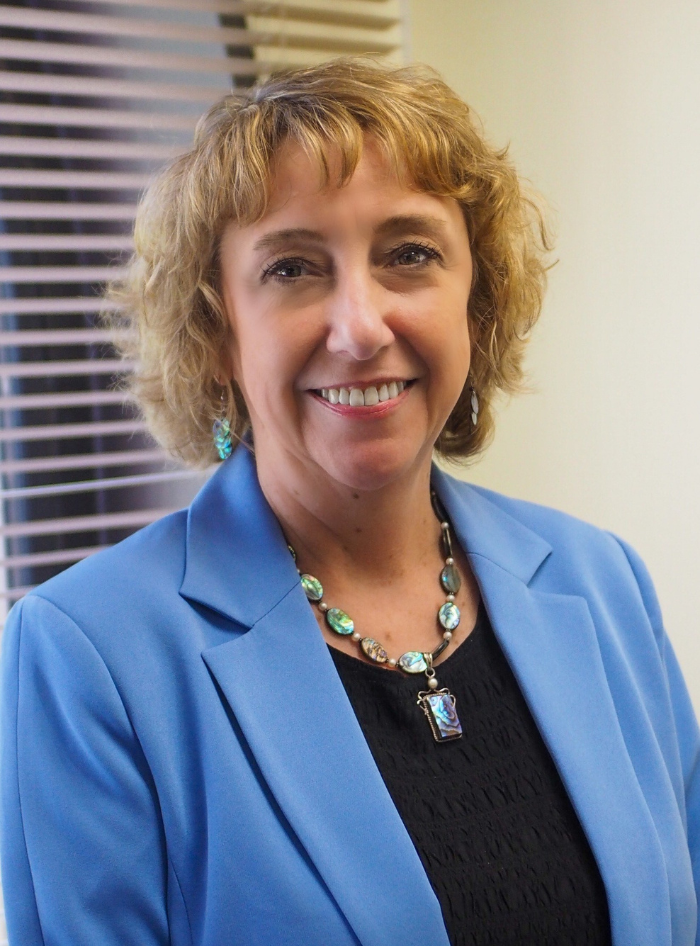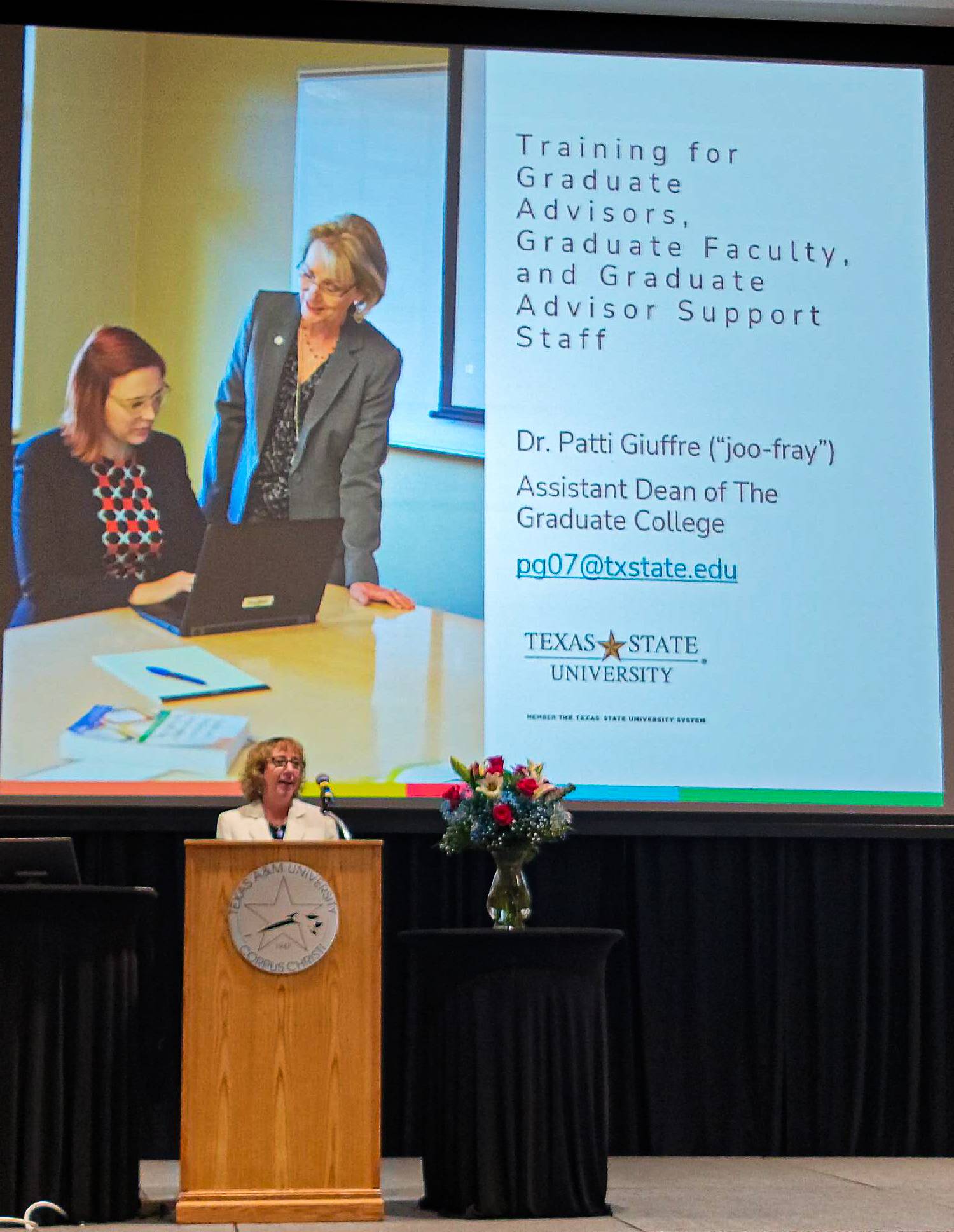Associate dean of The Graduate College presents at the Association of Texas Graduate Schools
October 11, 2023 | Kate Malazonia, with research from Breanna Evinger
Publications Writer, The Graduate College
The Association of Texas Graduate Schools hosts an annual meeting to discuss best practices, goals, and current problems common to graduate programs in Texas. Having been asked to present at the conference, Associate Dean of The Graduate College, Dr. Patti Giuffre, shared her knowledge on how to support advisors, staff, and faculty so they, in turn, can successfully mentor graduate students throughout their graduate school journey.
5 Tips for Training Graduate Advisors

In her presentation titled, ‘Training for Graduate Advisors, Graduate Faculty, and Graduate Advisor Support Staff’, she shared many insightful tips for training graduate advisors including:
- Regularly hosting workshops with topics such as ‘Exploring the Funding Landscape for Graduate Students’.
- Regularly sharing proactive emails and resources using email templates that are easy to recycle.
- Maintaining a centralized location for resources - a website or LMS training site e.g., Canvas
- Familiarizing yourself with graduate college resources and creating a list of important contacts around campus
- Take care of yourself
Throughout her presentation, Dr. Giuffre referenced her pragmatic approach to advising as being a “win-win” situation saying, “I like to think of training graduate advisors as ‘supporting the supporters of graduate students.’ This approach is ‘win-win’ because students ultimately benefit from the greater support of graduate advisors. For example, if graduate advisors can learn more quickly about resources on campus, then they can point their students to those resources and other forms of support. Inevitably, their students will be more successful. We will also see positive results in recruitment and retention.”
Dr. Giuffre’s Background and Expertise
Dr. Giuffre has been a long-standing, dedicated faculty member of Texas State University, having begun teaching at Texas State in 1998. She went on to become the Assistant Dean of The Graduate College in 2021 and as of October 2023, has been promoted to Associate Dean of The Graduate College. Additionally, Dr. Giuffre has advised graduate students in various programs including the M.A. in Sociology, M.S. in Applied Sociology, Interdisciplinary M.A./M.S. in Sustainability Studies, and online M.S. in Dementia and Aging Studies. She has conducted research on topics such as gender inequality at work, sexual harassment, and sexual orientation discrimination.
The topic of training graduate advisors is one that Dr. Giuffre highly resonates with due to her background as a graduate advisor. She highlighted that when it comes to taking on the role of a Graduate Advisor, there is a clear learning curve that one needs to navigate.
“Graduate advisors work very hard, so I hope to find new ways to support them. I was a graduate advisor in sociology for 8 years, prior to starting as the Assistant Dean (and now, Associate Dean) and I loved it. Like most graduate advisors, I wanted to be the absolute best advisor possible; however, the first couple of years involved so much learning—not just about the curriculum and learning about The Graduate Catalog, but how to better connect with and mentor grad students.”
A Forward-thinking Approach

With Colleges trying to keep up the enrollment and retention rates, Dr. Giuffre offers one of many solutions to keeping students engaged with the Texas State community. Her goal of effectively training graduate advisors strongly aligns with Texas State University’s mission of ‘creating new knowledge.’
“Students need resources and support to do research successfully. Graduate advisors are also researchers who are helping to train these budding scholars. They (and other graduate faculty mentors) can help point the way to the many sources of support available to graduate students (including but not limited to professional development opportunities such as Graduate College Shop Talks, services from key offices on campus--The Writing Center, The Counseling Center, International Student and Scholar Services, library workshops, and resources--among many more.”
As Texas State continues to embark on its mission of becoming an R1 institution, creating innovation from within the student body will become a critical success factor for the university and therefore, it is more important than ever to keep students feeling inspired and motivated.
“The resources to support our quest to create new knowledge are out there!”, highlighted Dr. Giuffre. “We can shine a light on them for our graduate students, particularly students who have no family members who went to college or graduate school.”
The Graduate College congratulates Dr. Giuffre for her achievements and thanks her for her constant dedication to improving the student, faculty, and staff experience.
For graduate faculty and advisors who want to learn more about mentoring graduate students, The Graduate College provides resources such as the Mentoring Graduate Students webpage with tips and articles, and recorded Faculty Development Workshops.